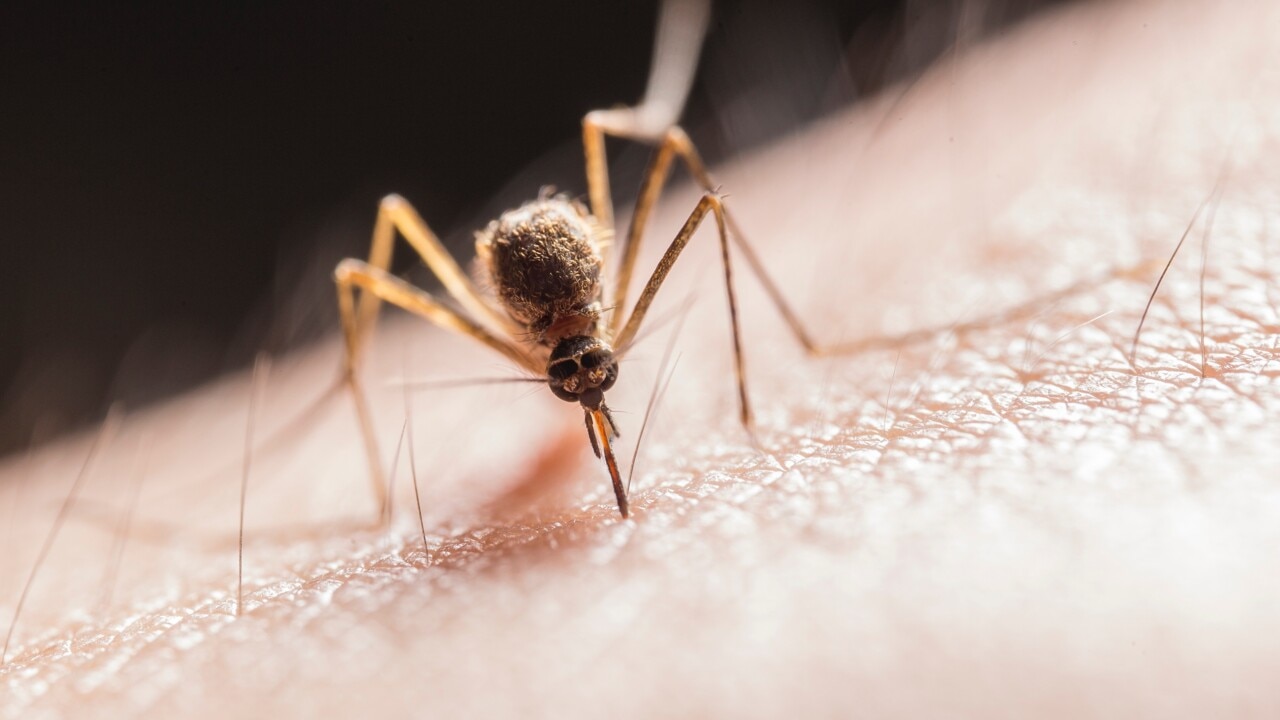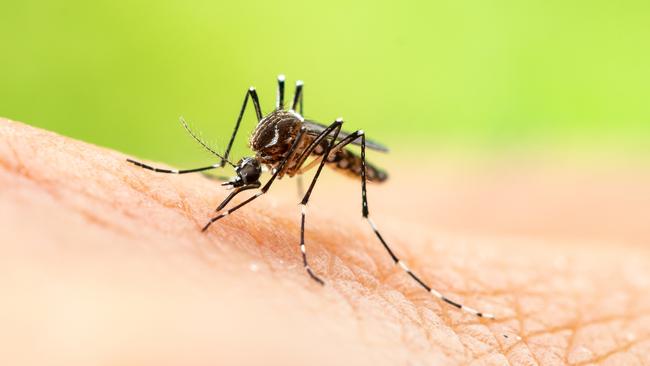Everything you need to know about Japanese encephalitis
A leading infectious disease expert has called for calm in the wake of a rise in mosquito-borne Japanese encephalitis. Here’s all you need to know.

Victoria
Don't miss out on the headlines from Victoria. Followed categories will be added to My News.
A leading infectious disease expert has called for calm in the wake of a rise in mosquito-borne Japanese encephalitis (JE) cases, saying the disease is unlikely to reach cities and multiply like Covid-19.
Health authorities are urging residents to avoid getting bitten by mosquitoes after rising incidents across several states.
The cases have been linked to commercial piggeries in NSW, Qld, Victoria and South Australia, with the disease spreading from animals like pigs to mosquitoes and then to humans through mosquito bites.
It cannot spread from human-to-human contact like Covid-19.
The virus has been present in Northern Australia for decades and was last detected in humans in the 1990s, however it has never been recorded in states further south until now, with experts believing the wet weather has contributed to the spread.
Infectious diseases physician and microbiologist Professor Collignon said the risk of the disease was greatest to people living in regional areas near pig farms or camping or trekking near wild pigs.
“This is not something I would panic over. We need to be concerned and alert. But I would not panic, particularly if you’re living in a city,” he said.
“The people who need to take more care of people who go camping along the rivers in the countryside and particularly people who live in or within a few kilometres of a pig farm.”
He did, however, warn that flood-ravaged communities could be at greater risk of contracting the disease because of increased mosquito populations, particularly if they live near animals.
Less than one per cent of people infected will experience symptoms and only one in 250 will experience severe disease, which includes headache, fever, disorientation, inflammation of the brain, tremors, coma, seziures and even death.

Children younger than five and the elderly are the most at risk of serious disease and one in three people with severe infection will die from the disease.
Despite the low risk, Professor Collignon said even city folk should take measures to prevent being bitten such as wearing long sleeves and using mosquito repellant, which will also help curb the spread.
“You should avoid mosquito bites for lots of reasons including the risk of other diseases like Ross River,” he said.
“The fact that we’ve found a number of people with severe disease also implies that there’s more cases out there. What we don’t want is for it to become bigger.”
There is a vaccine to prevent the disease, with the Federal Government confirming there is enough to supply high-risk groups. Professor Collignon said the vaccine would only be necessary for those living or working near pigs.
Victoria on Wednesday announced they would vaccinate high-risk communities, such as those who work with pigs, along the border against the virus.
WHAT IS THE VIRUS
Japanese encephalitis (JE) is a disease caused by the Japanese encephalitis virus (JEV). It is spread to humans by infected mosquitoes, which become infected from biting infected animals.
It cannot be spread from human to human or contracted by eating animal products like pork or chicken.
WHAT ARE THE SYMPTOMS?
Less than one per cent of people infected with JEV will experience symptoms. Those that do will usually develop the following 5-15 days after being infected:
– Headache
– Fever
– Neck stiffness
– Disorientation
– Tremors
– Coma
– Seizures
IS IT DEADLY?
It is rare for people infected to become critically ill, with most people not displaying symptoms.
Severe symptoms can, however, lead to permanent neurological complications or possibly death.
Children younger than five and the elderly are the most at risk of serious disease.
WHO IS AT RISK OF INFECTION?
People working with pigs are known to be at higher risk of contracting the disease, with the disease linked to 21 piggeries across Australia.
Those who engage in outdoor activities like camping, fishing or hiking near significant mosquito populations, particularly near waterways, are also at risk.
WHERE HAS IT BEEN DETECTED?
Two cases have been confirmed in the Griffith region.
Several more people in NSW are currently undergoing further testing for JE and more cases are expected to be confirmed.
HOW TO PREVENT INFECTION
The best way to prevent infection is to take precautions against getting bitten by mosquitoes. :
– Avoid going outdoors at dawn and dusk, and close to wetland and bushland areas.
– Wear long sleeves and pants outdoors
– Use repellent and reapply after swimming
– If camping, ensure the tent has fly screens to prevent mosquitoes entering.
– Mosquito coils and other devices that release insecticides can also be useful.
IS THERE A VACCINE?
There is a vaccine to prevent the disease, with the federal government confirming there is enough to supply high-risk groups.
Victoria on Wednesday announced they would vaccinate high-risk communities, such as those who work with pigs, along the border against the virus.
More Coverage
‘Nothing to apologise for’: Ex-police Minister backs top cop
Protesters awaiting charges after Harbour Bridge blockade
WHAT IS THE TREATMENT
There is no specific treatment available for JE.




